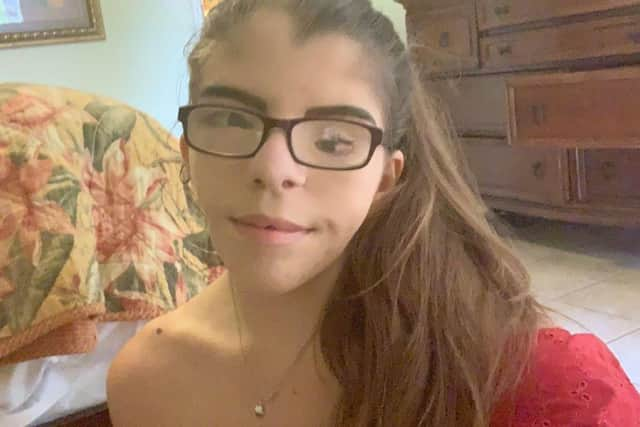Stop The Stare: Sandy woman joins Changing Faces campaign to highlight negative impact of staring
and live on Freeview channel 276
A young woman from Sandy has joined a campaign to highlight the negative impact of being stared at.
Hannah Ross, 20, was born with Goldenhar syndrome – which means she has a visible facial difference as well as scoliosis (curve of the spine).
Advertisement
Hide AdAdvertisement
Hide AdAnd she says she’s been on the receiving end of stares that made her feel ‘like an outcast’.


Hannah explained: “I first became aware of staring when I was around 10 or 11. People would stare at me and I'd think to myself' 'why can't I just look normal then I wouldn't have worry about going out in public knowing people will stare wherever I go?"
"Staring makes you feel like an outcast to society, as it makes you feel like there is something wrong with you and confirms or adds to your insecurities of feeling judged for looking different. It makes you feel paranoid and constantly on edge"
"I remember once when I was 14, I was in the queue in a shop with my sister. There was a girl in the queue who was my age, and she was staring at me. She kept doing it, so I decided to smile. But she didn't smile back, and she wasn't looking away. I felt like I couldn't escape, and it really affected me for days after. I was thinking 'why do I have to live my life worrying about people staring at me?"
Advertisement
Hide AdAdvertisement
Hide AdChanging Faces, the UK’s leading charity for anyone with a disfigurement or visible difference – a scar, mark or condition on their face or body – is calling on people to ‘Stop The Stare’ as part of Face Equality Week.
New research has revealed that people with visible differences have experienced an increase in hostile behaviour when they go out in public, with a rise from a third (34%) in 2019 to over two in five (43%) in 2021.
More than half cited that they have felt self-conscious or embarrassed as a result, and a quarter said they felt isolated and lonely.
Heather Blake, Chief Executive, Changing Faces says: “With limited opportunities to socialise, people shielding, and visible differences being obscured by masks and face coverings, perhaps seeing a diverse range of faces and body types hasn’t been as commonplace in the past two years. But frankly that’s no excuse, it’s simply not acceptable that people are experiencing negative behaviours, abuse and discrimination because of how they look.”
Advertisement
Hide AdAdvertisement
Hide AdHannah added: "Representation matters. It not only reflects society but will create a greater understanding of visible differences and stop staring from taking place. I am passionate about raising awareness of the impact of staring and my younger self would be happy that I'm now a Changing Faces campaigner and can use my voice to support others."
Changing Faces is the UK’s leading charity for everyone who has a scar, mark or condition that makes them look different. For advice or support see www.changingfaces.org.uk or call 0300 012 0275.
